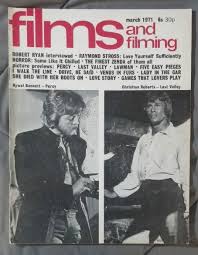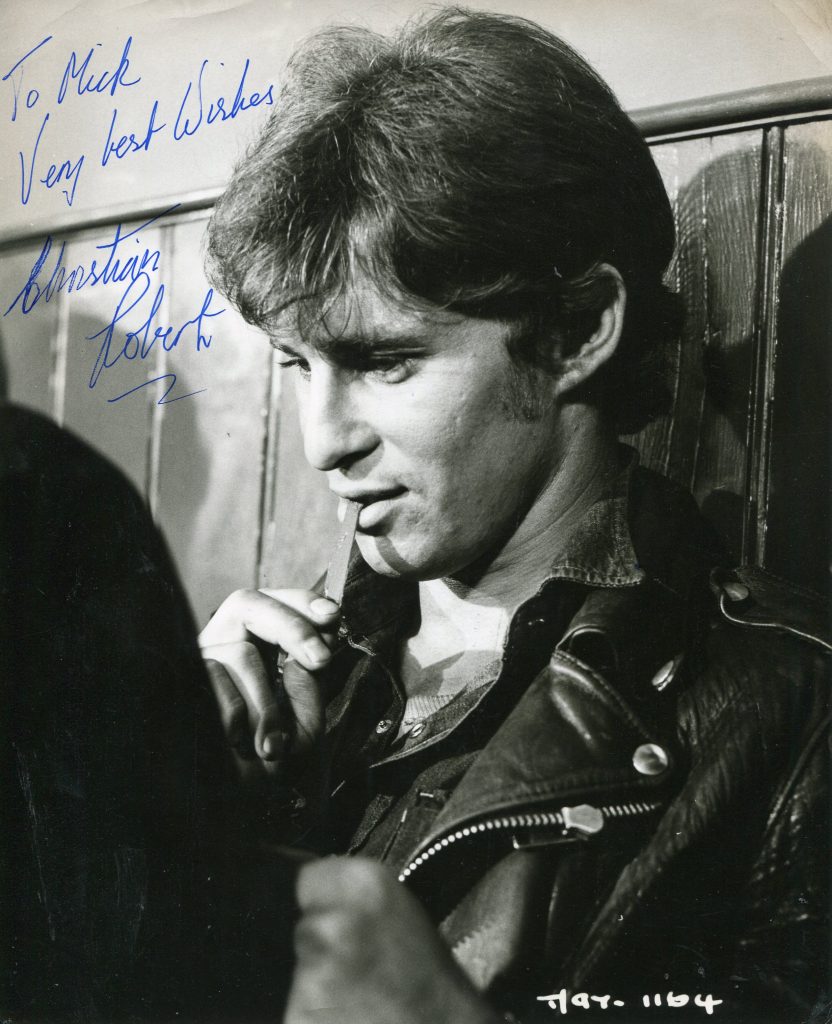
Christian Roberts Times obituary

Hired straight from Rada to play the unruly pupil Bert Denham opposite Sidney Poitier as a good-natured teacher in James Clavell’s 1967 schoolroom drama To Sir, with Love, the handsome young actor Christian Roberts could not believe his luck. He was being paid a princely £75 a week and was dating his co-star Judy Geeson. The film did well — made for $600,000, it netted $14 million at the box office in its first year — and he was put on a five-year contract by Columbia Pictures.
His second feature, the black comedy The Anniversary (1968), proved a reality check when he encountered an imperious leading lady in Bette Davis. Fearing she would be upstaged in her role as his mother, she demanded cuts to his witty one-liners in the script.
But it was the 1960s, when Swinging London was at its height, so he hardly cared as he spent his nights with Geeson at La Famiglia, Alvaro Maccioni’s trendy King’s Road trattoria frequented by Princess Margaret, and learnt the art of professional hosting (his later calling) from Johnny Gold, who ran the night club Dolly’s, later Tramp, in Jermyn Street.

He had bought a 1954 Bentley R-type, which he sprayed white; after taking up with the fiery actress Kate O’Mara, who starred in his fourth film, a 1969 western called The Desperados, he drove it and her to Rome, where Lewis Gilbert, director of his 1970 film The Adventurers, paid him $400 a week in expenses and insisted on using his car in a scene with Candice Bergen.
Another girlfriend was the French actress Pascale Petit, with whom he worked on a TV film, Berlin Affair. He stayed with her in Paris until she threw him out for smoking dope, a social accessory of the times that he enjoyed and did not hide in his self-published memoir, typically self-effacingly called Thank God I’m Not Famous.According to that book, his father Douglas’s only comment on The Adventurers, based on a Harold Robbins novel, was: “Far too much sex”. Douglas was the paternalist boss of Job’s, once the largest privately owned dairy in Britain, a successful family business with origins in the 1870s, when Roberts’s great-grandfather Edward moved from Wales to work as a milkman in Teddington, then in Middlesex.
Christian Charles Roberts was born in March 1944 in Southmoor, Berkshire, where his family were evacuated during the war. Roberts’s formative years were spent in some comfort at Long Orchard, a 50-acre farm in Cobham, Surrey. Following his father and grandfather, he was educated at nearby Cranleigh School, where he was head boy and captain of the rugby XV. Having discovered a love of Shakespeare, after a spell at Grenoble University he went in 1964 to Rada, where his friends included Kenneth Cranham and Roger Lloyd-Pack. After his performance as the Comte de Dunois in George Bernard Shaw’s Saint Joan, the impresario Val Parnell, father of a school friend and producer of the TV showSunday Night at the London Palladium, recommended him to an agent, who signed him to To Sir, with Love.
In 1973, with his film career no longer sparkling, he returned to his first love, live theatre, working closely with the now defunct Redgrave Theatre in Farnham, Surrey. That year he married the Yorkshire-born Christine Carswell, with whom he had two children: Lucy, a psychotherapist, and Ben, an electrical designer. They all survive him. In 1979, aware that he had mouths to feed, Roberts quit acting and joined Job’s as director of health and safety.
Family ties were important. He later recalled taking his seven-year-old nephew Andrew to the premiere of the 1970 film Waterloo, and liked to claim that this encouraged the boy, now Lord Roberts of Belgravia, to become a historian and write a bestselling biography of Napoleon.
After his father’s death, Job’s was sold to Unigate in 1987, though the family still owned the franchise on more than 50 Kentucky Fried Chicken branches across southern England. No longer in a job, he returned to the theatre where, acting at the Redgrave, he befriended the director Bob Carlton. They collaborated onFrom a Jack to a King, a rock’n’roll version of Macbeth, encouraging Roberts to invest in a follow-up, Return to the Forbidden Planet (based on The Tempest). That proved a hit, winning the Laurence Olivier award for best new musical in 1989, clocking up more than 1,500 performances at the Cambridge Theatre in London, and earning Roberts, who starred in it, and his angels a considerable profit. Buoyed by this and the sale of the family business, he bought a house on the west coast of Barbados, close to Sandy Lane, the luxury hotel beloved by the super-rich.
Next door was a disused Texaco garage that he acquired for $10,000 and turned into the Lone Star, a chic beachfront restaurant with a four-room hotel attached. This was much-loved by the local glitterati, who appreciated his discretion as much as the food and atmosphere. Simon Cowell described it as “probably the best restaurant in the world”, which was endorsed by Michael Winner in his Sunday Times restaurant column. When Michael Caine, with whom Roberts had acted in the 1971 film The Last Valley, visited, he pronounced: “You ain’t done too bad, ’ave you, Christian?”
Roberts wrote an unpublished piece for the Sunday Times Magazine in 2008 titled “Day in the Life of a Self-Confessed Hedonist”, which detailed how, on waking to the sound of breaking waves, he smoked his first Montecristo of the day. After riding his paint horse Jack, he repaired to his restaurant for lunch, preceded by a couple of rum sours and another cigar, and accompanied by a bottle of rosé. The afternoon was given over to a “siesta”, and then at 6.30pm he was back in the restaurant, using his charm and theatrical skills to orchestrate a memorable evening for his guests. If dining with friends, a vodka martini would be followed by a fillet steak and a bottle of Château Clarke.
Christine, however, no longer enjoyed Barbados and stayed mainly in London. Realising he was overdoing it, Roberts told a friend he needed to sell the restaurant or it would kill him. A buyer emerged in David Whelan, the multimillionaire owner of JJB Sports and Wigan Athletic football club, who had grown to love the Lone Star on trips to Barbados. The property changed hands in 2013 for $13 million. For several years afterwards Roberts still kept an apartment on the island.
He died in 2022 at the age of 78.
Old Cranleighan Society appreciation
We are sorry to have to report Christian Roberts (East/Cubitt 1962) died on Boxing Day. He was a film and stage actor and one of four generations of Roberts to have studied at Cranleigh. A loyal OC who regularly attended the Over 70s reunions he was held in great affection by all who knew him. He started his career in the seminal To Sir with Love and went on to have a wonderfully varied career. Return to the Forbidden Planet, the musical he produced and starred in, is credited with the birth of modern musical theatre and earned a Laurence Olivier Award in 1990. A few years ago we were lucky enough to chat to him
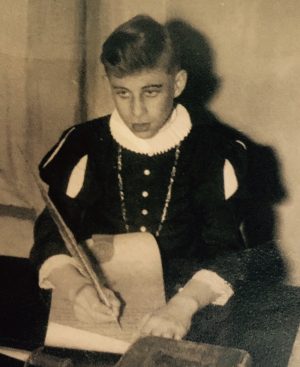 Classical drama is incredibly important for children and schools should never shy away from allowing pupils to be really challenged by the great plays. I was lucky enough to have had teachers that understood this and I knew from an early age that acting would be the career for me. I attended a convent school before joining Cranleigh Prep and, looking back, I can see that the theatricality of the nuns with their costumes and services really appealed to me and instilled a love of dressing up. From my first year at the Prep I got involved in all the drama I could possibly find. There was a teacher called Lance Marshall who put on the most incredibly ambitious plays for prep-school aged children: Marlowe’s Tamburlaine the Great and Doctor Faustus, and of course plenty of Shakespeare. I loved it all, even the learning of speeches in Latin for the Marlowe plays.
Classical drama is incredibly important for children and schools should never shy away from allowing pupils to be really challenged by the great plays. I was lucky enough to have had teachers that understood this and I knew from an early age that acting would be the career for me. I attended a convent school before joining Cranleigh Prep and, looking back, I can see that the theatricality of the nuns with their costumes and services really appealed to me and instilled a love of dressing up. From my first year at the Prep I got involved in all the drama I could possibly find. There was a teacher called Lance Marshall who put on the most incredibly ambitious plays for prep-school aged children: Marlowe’s Tamburlaine the Great and Doctor Faustus, and of course plenty of Shakespeare. I loved it all, even the learning of speeches in Latin for the Marlowe plays.
By the time I moved across to the senior school I added parts in Hamlet, A Midsummer Night’s Dream, Henry IV part 2 and Julius Caesar. There, too, the drama department, headed up by Pat Maguire and Warren (Bunny) Green, was not afraid to stage difficult plays and I enjoyed the role of Thomas Beckett in TS Eliot’s Murder in the Cathedral.
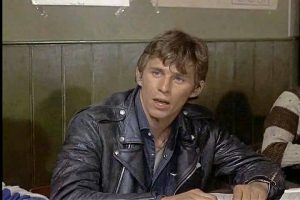 Like many actors I’m a true romantic with a love of stories and playing kings, fuelled by the great plays, that I took with me from these beginnings right through my career. My romantic outlook has always given me optimism and I never really worried about how anything would turn out, just took it all in my stride. I auditioned for RADA, got in first time and spent three very happy years there. Although I loved watching movies, I had never thought of myself as a movie actor so I was amazed when I tried for To Sir with Love and got the part. It was exciting to work alongside stars such as Sidney Poitier and to work on material that brought up social and racial issues but none of us had any idea at the time what a ground-breaking film it would turn out to be. It was one of the top grossing films of 1967, costing just £600,000 to make, and it grossed £50million at the box office – it is still up there as one of the highest grossing films of all time.
Like many actors I’m a true romantic with a love of stories and playing kings, fuelled by the great plays, that I took with me from these beginnings right through my career. My romantic outlook has always given me optimism and I never really worried about how anything would turn out, just took it all in my stride. I auditioned for RADA, got in first time and spent three very happy years there. Although I loved watching movies, I had never thought of myself as a movie actor so I was amazed when I tried for To Sir with Love and got the part. It was exciting to work alongside stars such as Sidney Poitier and to work on material that brought up social and racial issues but none of us had any idea at the time what a ground-breaking film it would turn out to be. It was one of the top grossing films of 1967, costing just £600,000 to make, and it grossed £50million at the box office – it is still up there as one of the highest grossing films of all time.
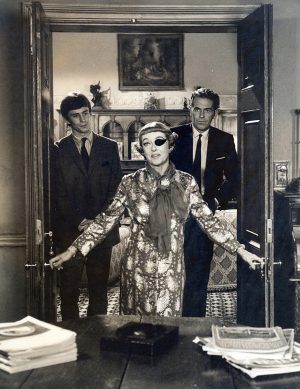 I never wanted to be famous, it wasn’t something I had ever considered, I just wanted to do good work. But the success of the film meant I got to work with people like Bette Davis who played my mother in The Anniversary, which I really enjoyed because it was a stage play that they turned into a film and it retained a highly theatrical quality. Perhaps my personal favourite film was The Desperadoes, with Jack Patience playing my father, because I loved playing cowboys as a kid and the whole experience was such fun.
I never wanted to be famous, it wasn’t something I had ever considered, I just wanted to do good work. But the success of the film meant I got to work with people like Bette Davis who played my mother in The Anniversary, which I really enjoyed because it was a stage play that they turned into a film and it retained a highly theatrical quality. Perhaps my personal favourite film was The Desperadoes, with Jack Patience playing my father, because I loved playing cowboys as a kid and the whole experience was such fun.
But my great love was always the stage, where actors get a more genuine and intimate response, where they and the audience can experience real emotion. In film there is always someone standing behind you. So I joined a rep company and began to thoroughly enjoy performing a different play every two weeks, rehearsing one during the day and performing the other in the evenings. You get to learn things very quickly because, strangely, the more lines you learn the easier it is to learn lines, something that non-actors find it difficult to understand.
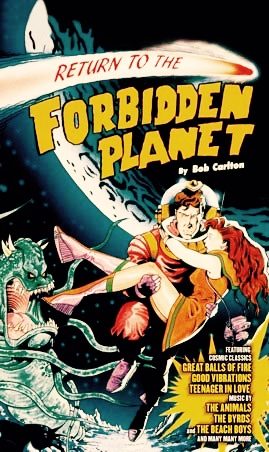 Return to the Forbidden Planet appealed to me right from the outset because the story is based on The Tempest with the exile being to the forbidden planet from the 50s B movie, rather than the island where Prospero learns his magic. It was long before jukebox musicals really took off but the marriage of wonderful 1950s songs with the dialogue of Shakespeare seemed like a match made in heaven for me. It was largely funded by Old Cranleighans and had a slow start but had a breakthrough when it was featured on a TV clip after which the sales went through the roof. We did eight shows a week and I loved every single one. It is so important to keep people entertained; if you can educate them through that entertainment then even better. Forbidden Planet made Shakespeare accessible for all kinds of people who would not otherwise have seen it.
Return to the Forbidden Planet appealed to me right from the outset because the story is based on The Tempest with the exile being to the forbidden planet from the 50s B movie, rather than the island where Prospero learns his magic. It was long before jukebox musicals really took off but the marriage of wonderful 1950s songs with the dialogue of Shakespeare seemed like a match made in heaven for me. It was largely funded by Old Cranleighans and had a slow start but had a breakthrough when it was featured on a TV clip after which the sales went through the roof. We did eight shows a week and I loved every single one. It is so important to keep people entertained; if you can educate them through that entertainment then even better. Forbidden Planet made Shakespeare accessible for all kinds of people who would not otherwise have seen it.
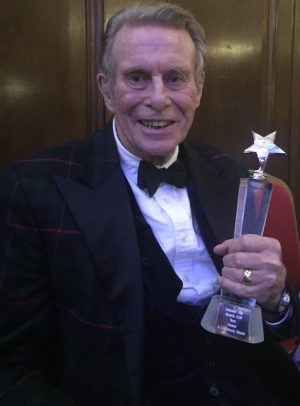 My love of Shakespeare also led me to produce A Caribbean Dream, in the years I spent in Barbados. It is based on A Midsummers Night’s Dream and features both Barbadian and English actors. The film has just won Best Drama at the Barbados National Film Awards 2018.
My love of Shakespeare also led me to produce A Caribbean Dream, in the years I spent in Barbados. It is based on A Midsummers Night’s Dream and features both Barbadian and English actors. The film has just won Best Drama at the Barbados National Film Awards 2018.
Musical theatre is still enjoying an absolute heyday, with new shows appearing all the time. Theatre itself is very vibrant, despite the constant pessimism that Netflix will kill it off, and I think that classical stage drama has an enduring appeal. So many people want tickets that are hard to get hold of that many small theatres and arts centres now show film of the West End shows. Film itself has changed a lot over the years, not always in a good way. There is too much computer generation now, I prefer to see real actors and actresses really acting, rather than CGI, and that emotion is possibly the reason the stage is still so popular.
My advice to budding actors would definitely be to go to drama school, to learn technique. But, before that, to get involved in everything you can, not just the drama. At school I loved sport and music too and enjoyed everything opportunity that was provided at Cranleigh. On the sports field and in the choir, playing and singing your heart out, is where character really develops.
